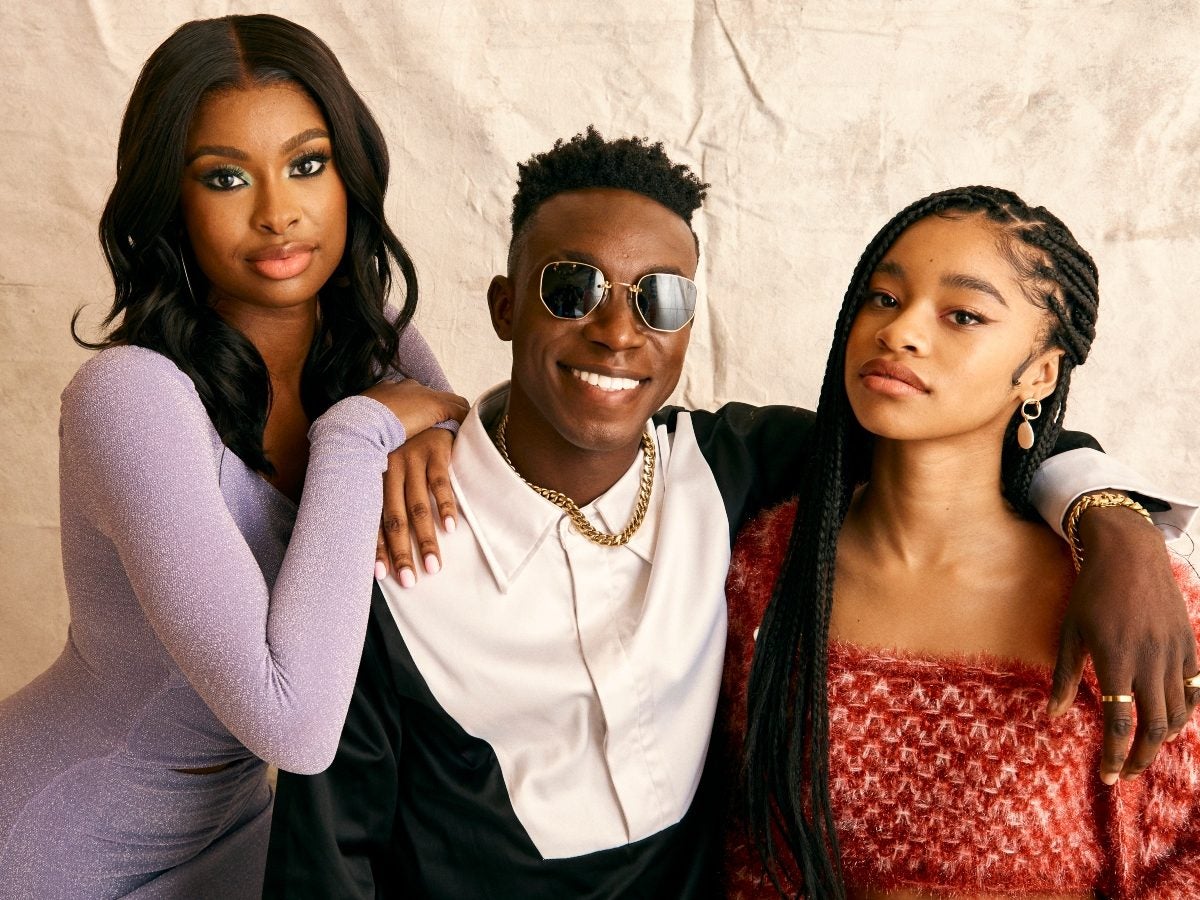
Who defines the current class of young Black Hollywood? The group is in constant flux, with names like Yara Shahidi, Zendaya, Marsai Martin, Taylor Russell, and Storm Reid remaining staples as newcomers such as Myha’la Herrold, Jasmin Savoy Brown, Whitney Peak, and Coco Jones find their breakthrough roles via the hit series Industry, Yellowjackets, Gossip Girl and Bel-Air. It goes without saying that the actors at the vanguard of this generation of Black Hollywood have put in the work to earn their due acclaim, but the faces on the screen are in large part the results of measured decision-making by TV executives and showrunners. These behind-the-scenes power players know full well the weight of their choices in shaping the next class of red carpet mainstays and future Oscar winners.
“We used to say we don’t cast stars, we make stars, and that’s as true today as it’s ever been,” says HBO’s Head of Comedy Programming Amy Gravitt.
It’s a fair assessment of the network’s role in the landscape considering the sheer multitude of careers that have been launched by the likes of Insecure, Euphoria, Industry, and Gossip Girl, all juggernaut series for the streamer, all Black-led.
Working with unknown and lesser-known talent is something that showrunner Carla Banks-Waddles is no stranger to. Her Bel-Air makes for an interesting case study, having broken Peacock’s streaming records with an all Black cast of Gen-Zers, anchored by 24-year-old Jabari Banks, in its first season.
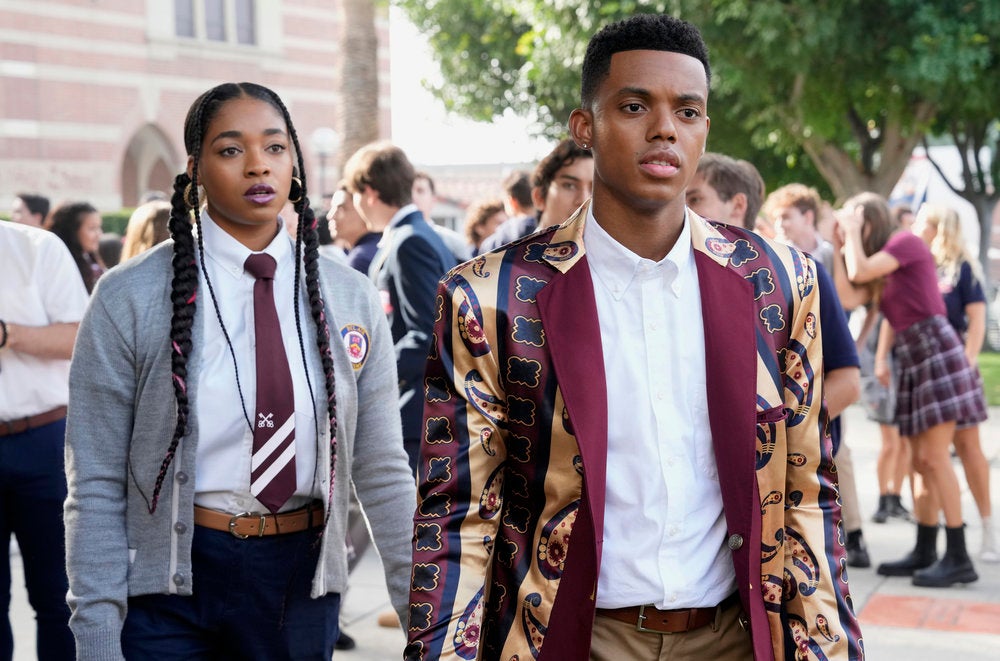
“With Jabari as number one on the call sheet and having this young, talented cast that people weren’t exposed to being given the opportunity to lead a TV show, I definitely think there’s more receptivity to finding new voices and new talent and not just going back to the same people,” Banks-Waddles says. “People are more willing to create stars and create those opportunities as opposed to looking for that readymade version that’s out there.”
The showrunner is an industry vet, with a track record of working alongside young Black talent on favorites like That’s So Raven and Half & Half. She points to streaming as one of the reasons up-and-coming actors today may find themselves with more consistent auditions than previous generations of TV hopefuls.
“For writers and actors and talent across the board, you used to count on network pilot season, and if that came and went and you didn’t have a job, you were sort of out of work for a year, honing your craft, taking classes — or writing scripts, in my case,” she explains. “But streaming has given opportunities for year-round jobs. You don’t have to wait for pilot season. The numbers game has just gone up and those opportunities are more abundant than ever.”
Sitting alongside a buffet of on-demand offerings, Nkechi Okoro Carroll‘s high school football drama All American found its foothold over the pandemic with a somewhat captive audience on lockdown and looking for entertainment. The show experienced what she characterizes as a “slow discovery,” premiering in 2018 on the CW but getting its major boost later from Netflix audiences. The series was just renewed for its sixth season and spawned a spinoff, All American: Homecoming, also helmed by Okoro Carroll.
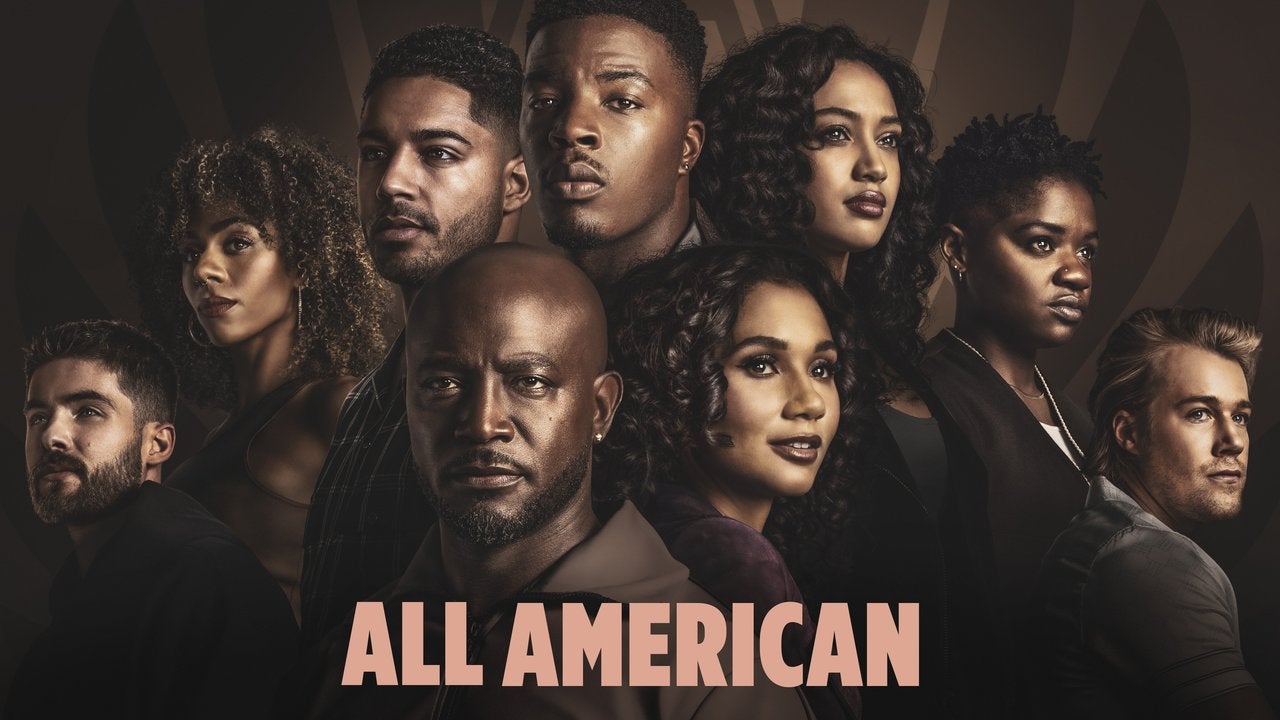
“I’m grateful that the CW stuck with us while it took people a second to find us,” she says. “I joke that when we initially came out, people weren’t expecting to find a show about young Black teens just living their lives authentically on the CW; they’d associated it with superhero shows. So my argument was that we’ve got to find that audience and redirect them to the fact that, Hey, something for you that is authentically portraying you is actually on this platform and you should check it out. And that’s what happened. Between that and Netflix, the show exploded. But it took a second, right? What was sort of a sleeper show becomes a monster hit, and then there starts to be a demand for more shows like that, or in that subject area, or based in that community, because now they’ve seen there is an audience for it.”
The truth is that the audience has long been there, Okoro Carroll adds, reflecting on the changes she’s seen in the industry over the years. “When I first started out, I used to take acting classes to meet talent to cast in my short films and plays and I remember the frustration around the types of auditions for young Black actors at that time,” she recalls. “They had braids in their hair, so they needed to be ‘young thug number two’ or so-and-so’s girlfriend, or the cafeteria lady, and it was like, well, why can’t they be economists and bankers and lawyers?”
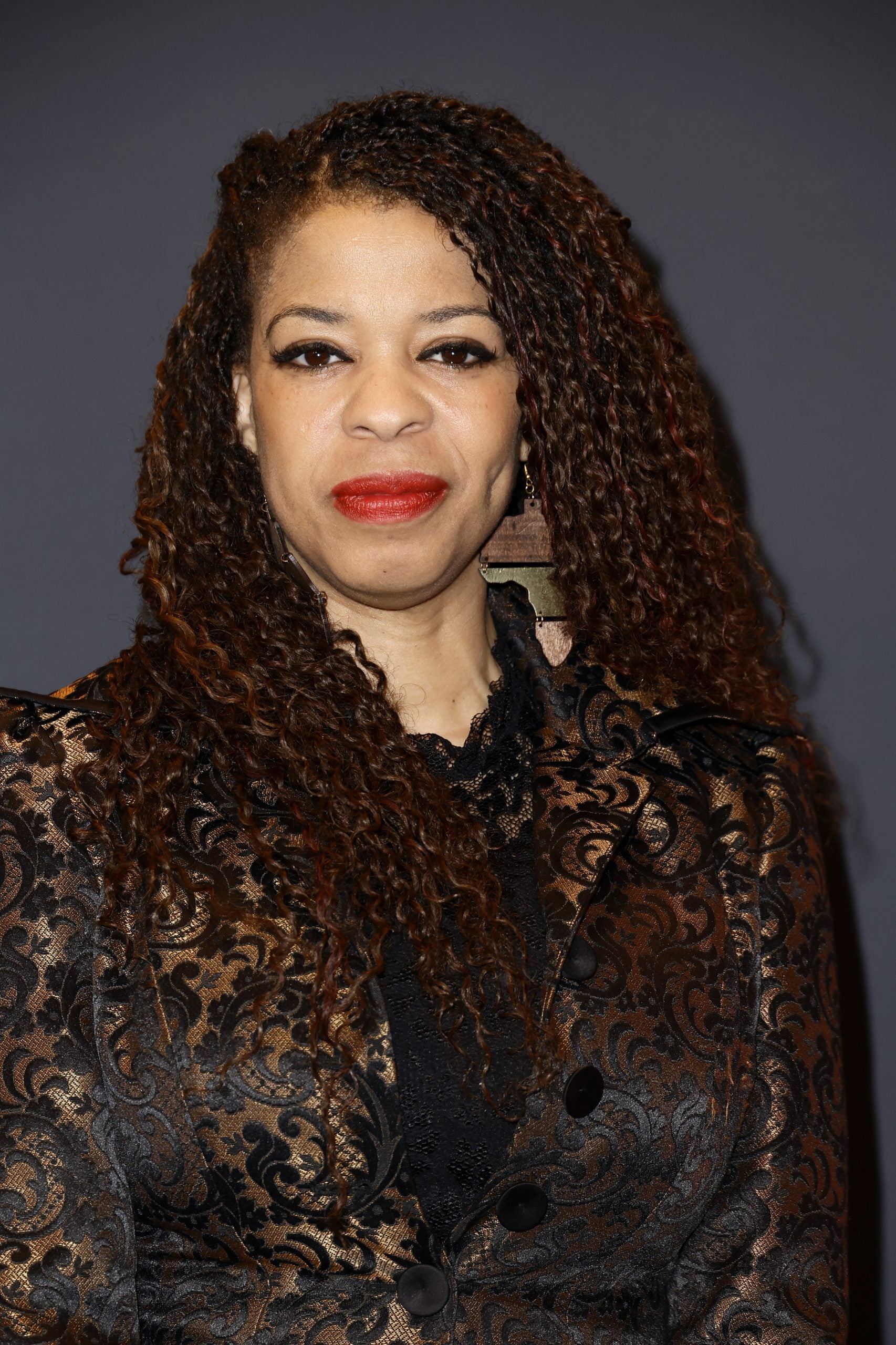
She acknowledges that there is progress yet to be made in keeping the door open for new entertainers to refine their skills, and one way to ensure new Black narratives are being considered is to staff writers rooms with Black talent. Undeniable strides have been made in recent years with the Writers Guild’s 2022 inclusion and equity report showing BIPOC writers accounted for 22.6% of screenwriters in 2020; in 2010 that figure was just 5.2%.
That kind of encouraging shift is engineered and sustained by executives at the programming level, but young actors like The Bold Type’s Aisha Dee have larger platforms than actors in previous generations to voice their concerns and push for change behind the scenes. Dee spoke out in July 2020 via an Instagram post, calling attention to her concern that “it took two seasons to get a single BIPOC in the writer’s room” for the Freeform dramedy. Her statement came only weeks into Freeform and Onyx President Tara Duncan’s tenure, but it served as an early “defining moment” for the exec. Freeform, which is operated by ABC, went on to unveil a set of diversity standards in late 2020.
“The talent that we see in front of the screen is a byproduct of who’s behind the scenes,” Duncan says. “We really want to make sure we’re cultivating and nurturing talent like writers, directors, and producers behind the scenes so we see that reflected in the roles actors are given in front of the camera.”
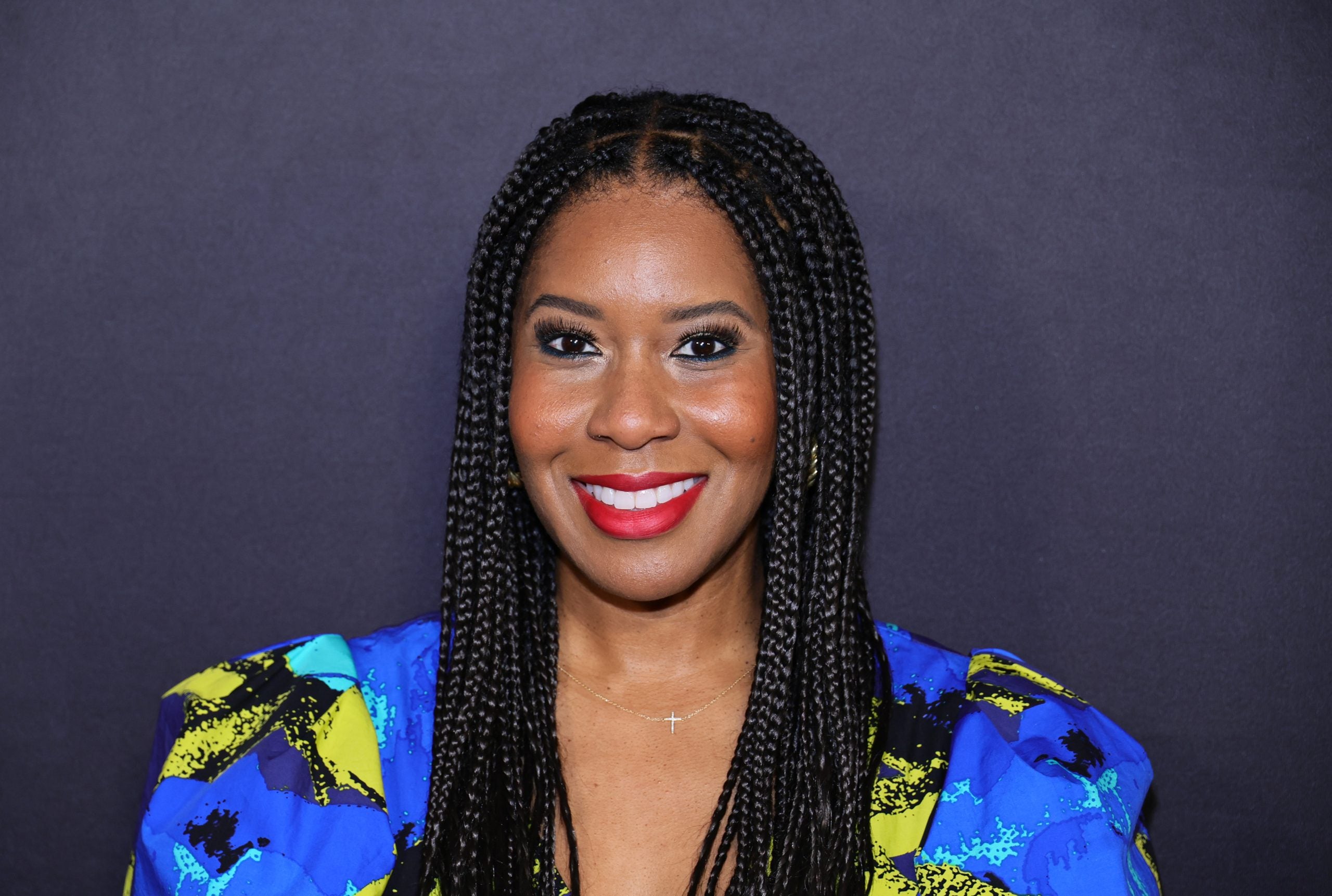
HBO’s Gravitt knows well that there is much to be gained from cultivating a strong relationship with your most promising young talent. The network’s investment in Issa Rae has paid dividends. Insecure catapulted Rae into the ranks of the Hollywood elite, though it was only the beginning of Rae’s work with HBO. Rap Sh!t, under Rae’s production banner, stars Gen-Zer Aida Osman and has been renewed for a second season. The series aired last summer and depicts two former high school friends (Osman and rapper KaMillion) trying to make it in the rap game; the City Girls are co-executive producers. While Rae’s reality series Sweet Life: Los Angeles was short lived, its two-season run still stands as a testament to HBO’s trust in following Rae’s creative lead.
“Ultimately, we have a whole slate of development with her,” says Gravitt of HBO and HBO Max’s partnership with the actress/writer/producer. “I think [our relationship with Rae] epitomizes our development process: we had seen her web series and when you talk about cultivating new talent, people who sit in the development chairs at HBO are huge consumers of culture. … Certainly we have agents introduce us to people, but at the same time, we are combing through and watching everything, keeping an eye out for that voice. The relationship with Issa came about from doing just that.”
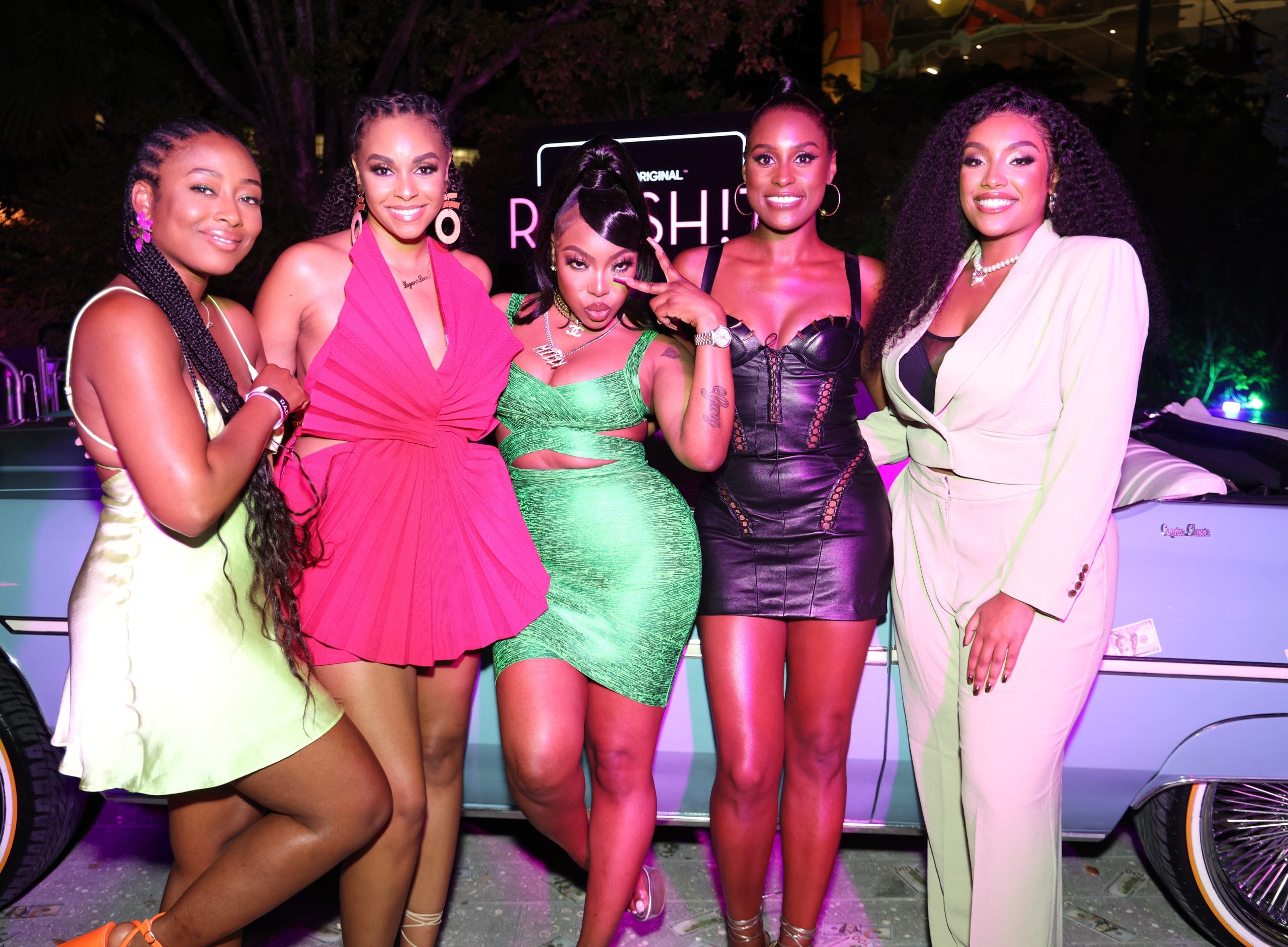
Finding talent through newer media is one way Black creators have been able to navigate the obstacles of an industry with more barriers than entry points. Case in point: Bel-Air’s Morgan Cooper broke into the arena with a short video reimagining of Fresh Prince as a drama, paving the way in 2010, at age 19, for what would one day become Bel-Air.
As for elevating young actors, Freeform’s Duncan praises shows like Grown-ish, which was just renewed for its sixth season, as a star-making vehicle set up to continue introducing audiences to young, relative newcomers. “Obviously Yara Shahidi is a powerhouse in and of herself,” Duncan says of the actress, who is also an executive producer on the series. “But then to be able to have her sort of pass the baton over to Marcus Scribner, who’s now leading the next chapter of Grown-ish from that young male perspective, building that new class of young talent is really exciting.”
Cruel Summer is another one of the network’s standout Zoomer-focused shows, which delivered Freeform’s largest debut last April and adds 19-year-old Little Fires Everywhere alum Lexi Underwood to the cast for next season. “I don’t want to give anything away, but I think people will be blown away when they see Lexi’s work,” Duncan teases. Also under Duncan’s slate as an Onyx production via Hulu Originals is The Other Black Girl, a TV adaptation of Zakiya Dalila Harris’s buzzy bestselling novel starring newcomers Sinclair Daniel and Ashleigh Murray.
Making new opportunities for young Black talent is a priority, but it’s insufficient without consideration for the myriad identities through which audiences experience life. Duncan names Zuri Adele’s Malika Williams in Good Trouble as one such example of an underrepresented identity she’s proud to showcase: Adele, who is bisexual, has played a bisexual activist and bartender on the drama series for five seasons.
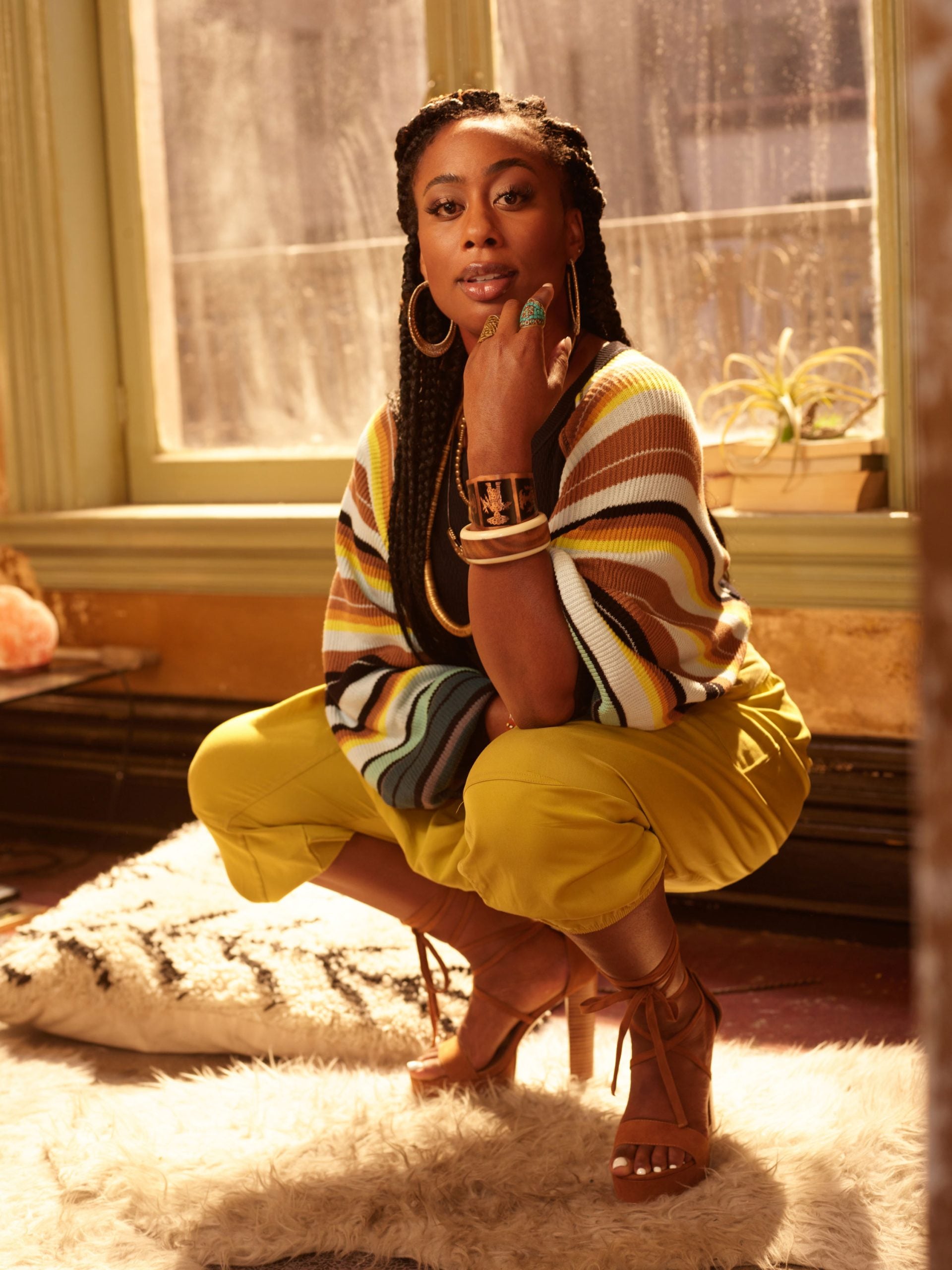
Banks-Waddles has observed that portrayals of marginalized groups, like the disabled and LGBTQIA communities, seem to be given more space to play out on screen now than in the past. “I definitely think that there’s more awareness of the importance [of depicting underrepresented intersections] where in the past it felt like, Oh, we’re going to do ‘a very special episode,’” she remarks. “I think now that authenticity in representation in general has become more important, less ‘special,’ less niche. There seems to be more of an understanding of the importance of inclusion and diverse voices and stories and the richness of that. It’s part of the people who are sitting in those seats.”
On Bel-Air, Banks-Waddles’s seat comes with the power to weave such narratives as central to her character’ identities rather than relegating them to one of those “very special episodes.” Akira Akbar’s Ashley Banks discusses her sexual attraction to another girl in a season one storyline that made waves on social media.
It’s worth celebrating that the roles for actors today reflect the audience in a more multifaceted way than in previous generations. That they seem to be more plentiful with the advent of streaming and that making space for Black talent in front of and behind the camera is acknowledged by network leaders as a priority is encouraging. But overall, the state of young Black Hollywood and the channels through which new talent will rise is predicated upon what is most lucrative. Thankfully, showrunners like Okoro Carroll know, and have proven, that Black narratives and Black talent are well worth the investment.
“These platforms and networks and studios, they have to turn a profit,” she says. “So at the end of the day, there’s not a lot of altruism here. It really is about what makes great business sense and frankly, providing stories for a community as big and diverse as we are makes business sense.”